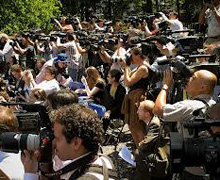By Elias Crim | Are you tired of the “trifecta” metaphor about the three current Washington scandals as yet? I won’t even ask if you’re tired of the Benghazi, IRS or AP scandals themselves.
Not because they have no significance. But because they are only the latest examples of how the news culture deconstructs our experience of the world and blocks our higher mental processes. That is, the news is a major mental pollutor; in fact it makes us dumb.
How the News Makes Us Dumb is the title of a remarkable book by C. John Sommerville some years ago and it’s the best short critique of a media culture I can think of. The product of the news business, Sommerville argued, is simply change (or the illusion of it), variety, shock, rather than information. CNN makes its broadcast “important” by diminishing any sense of context. And tomorrow’s news will be important for the same reason: more change. “The investigation,” Sommerville explains, “is the story, not the truth of the story.” It’s important not to “get to the bottom of it.”
The meat and potatoes of the news business are “crisis” and “tragedy”. Moreover, the news attempts to mask the randomness of life in order to give events personality and agency–there’s always a kind of myth of someone in control.
Thus we have the perpetual campaign, the daily referendum, an obsession with trends, with conflict ginned up through statistics (often dubious) which pit the generations against each other. One effect of this virtual or pseudo-society is its crowding-out of serious reflection or discussion for a kind of endless writing in the sand.
Sommerville says we must overcome the myth that the news “informs” us if we are ever to regain our higher mental functions, those of concentration, wonder and analysis.
For this third party post in its full context, please go to:


